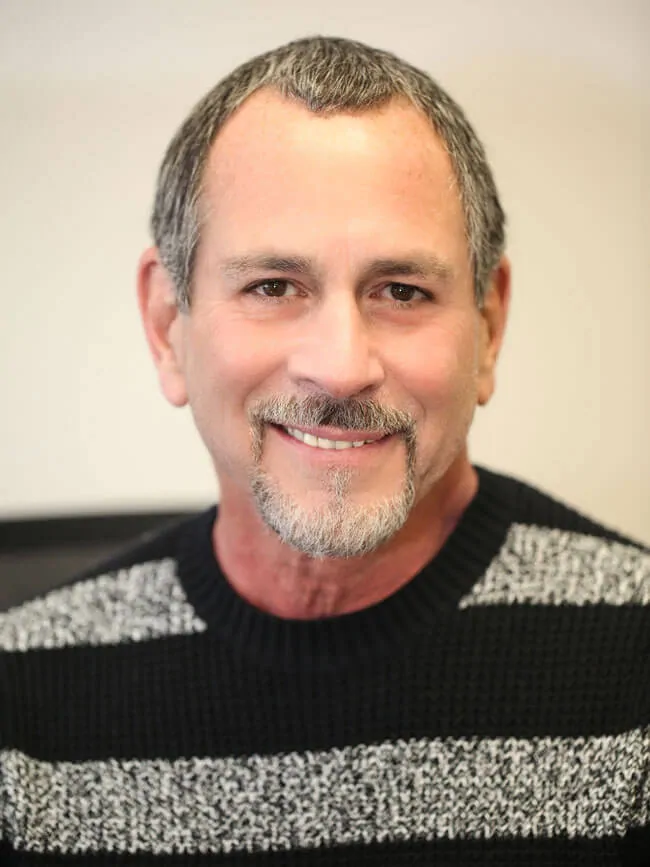HIV and aging: What LGBTQ elders need to know
Dr. Gary Blick, Chief Medical Officer and HIV specialist at Health Care Advocates International (HCAI), has some advice.
Approximately 1.2 million people in the U.S. are living with HIV today, half of which are 50 or older. While effective monthly treatment and antiretroviral therapy (ART) have positively impacted the lives of many by decreasing AIDS-defining illnesses, there are still critical health concerns for older LGBTQ individuals with HIV.
The National Institute on Aging (NIA) reports that thousands of older persons contract HIV every year. When an older person receives an HIV diagnosis, potentially as a “late presenter,” the virus could potentially have entered its late stages, increasing the chances of progressing to AIDS.

Meanwhile, more elders are living with HIV/AIDS in the U.S. than ever before. Gay and bisexual male elders are disproportionately affected by HIV, according to the American Psychological Association (APA), comprising roughly 60% of those 50 and older with HIV.
There are three categories for these individuals:
- Those who were infected earlier in life and are aging with the disease;
- The newly diagnosed who have been living with HIV for any amount of time but were only recently diagnosed; and
- The newly infected and, thus, those whose infection is in the beginning stages.
Despite early detection being the best opportunity to achieve quality and longevity of life, the potential for misdiagnosis and lack of testing is sadly, quite prevalent, amongst LGBTQ elders. According to the CDC, in 2018, 35% of people aged 50 and older already had late-stage HIV infection or AIDS when they received a diagnosis.
It is crucial for HIV-positive LGBTQ elders to understand the facts of aging with the virus. Late treatment runs the risk of causing more damage to one’s immune system.
One of my patients, ARG, noted, “When I fully understood my diagnosis, I was convinced I was going to die based on people that had a late-stage HIV diagnosis in the past. I put in the effort to learn about my diagnosis and the life expectancy increase due to adherence to an ART regimen. Medical professionals in my life taught me the scientific truth about my diagnosis and the advancements in the management of the virus.”
In 2015, the age group of 55 and older had the longest HIV diagnosis delay with half of those having lived with HIV for 4.5 years before their health care provider notified them that they tested positive for the virus.
With symptoms of HIV – chronic pain, fatigue, and weight loss – mimicking typical signs of aging, health care providers often do not consider HIV testing as a necessary step in evaluating the health of aging patients. In addition, the internal and external stigma that still surrounds people living with HIV and the fear of discrimination from health care providers and members of their own communities, are often barriers to early detection in the aging LGBTQ community.

As an HIV specialist, I have seen the monumental progress we have achieved in treating and destigmatizing HIV, but it is important to recognize that it is still a serious disease affecting millions worldwide. It is critical that health care providers recognize the signs and incorporate regular testing into the health care plans of their at-risk patients.
Matt, one of our long-time HCAI patients, stated “I was diagnosed with HIV just a few months after exposure. Being diagnosed so early enabled me to seek treatment and support shortly after, and then eventually start taking medication.”
He noted that although it was a really challenging time, the fact that he got diagnosed early helped him to get his life in order and prepare to live with HIV.
Matt continued, “It meant that there was little effect on my body and immune system, and I responded well to medication. My viral load dropped from 11,704 to less than 40 (undetectable) within 5 months of starting treatment. Knowing that I was living with HIV early on helped me to better care for my health and allowed me to improve my quality of life. It also gave me time to learn about and come to terms with my diagnosis earlier, reducing the effect of self-stigma.”
Another barrier to early HIV detection among the older LGBTQ community is that they themselves might be embarrassed to discuss their sex lives or assume what is actually HIV symptoms are just the normal signs of aging. Of course, misidentifying HIV symptoms can have major health repercussions if the virus goes untreated.
Once an individual is diagnosed with HIV, it’s imperative that they understand their status and that they begin taking medicine every day, especially those 50 and older. Those who stay virally suppressed can increase the longevity of their lifespan while living with HIV. The good news is that individuals 55 and older have greater viral suppression rates. What’s more is that those who maintain an undetectable viral load will avoid the risk of transmitting HIV to sexual partners living without the virus.
Aging with HIV also presents other health challenges. Combined with aging, the virus puts individuals at higher risk of bone loss, cancer and diseases such as cardiovascular, lung and chronic obstructive pulmonary diseases (COPD). Other conditions that coincide with aging such as depression, low testosterone, diabetes, hypertension and obesity, also create challenges for those with HIV when it comes to managing multiple medications.
Compared to those without HIV, more LGBT elders have reported dealing with at least two medical conditions simultaneously in addition to higher suffering in terms of mental health, according to the APA. Matt, despite getting diagnosed and started on ART early in his diagnosis, deals with depression along with COPD and hypertension, all of which affect his ability to remain fully compliant of taking his HIV and other daily medications. I encourage the LGBTQ community to take control of their lives by prioritizing your sexual health and needs, especially when it comes to living with HIV. For LGBTQ individuals recently diagnosed with HIV, especially older individuals, it is important to seek help as soon as possible.

ABOUT THE AUTHOR
Dr. Gary Blick is an internationally renowned HIV/AIDS clinician, clinical researcher, lecturer, and humanitarian. He is the chief medical officer of Health Care Advocates International, a public health and advocacy organization serving the LGBTQ community. He is also co-found of HIV Advocates and founder of the Zimbabwe AIDS Project (ZAP). While in medical school at the University of Miami in the early 1980s, he was inspired to become an infectious disease specialist due to the burgeoning national HIV crisis. Dr. Blick completed his residency training at Yale University and Greenwich Hospital Association and went on to receive additional credentialing from the American Academy of HIV Medicine. He has had a successful medical career for more than 30 years. To learn more about Health Care Advocates International visit https://www.hcaillc.com/.
USEFUL SOURCES
https://www.cdc.gov/hiv/group/age/olderamericans/index.html
https://www.apa.org/pi/aids/resources/aging/caregiving-lgbt
https://www.nia.nih.gov/health/hiv-aids-and-older-adults#older






